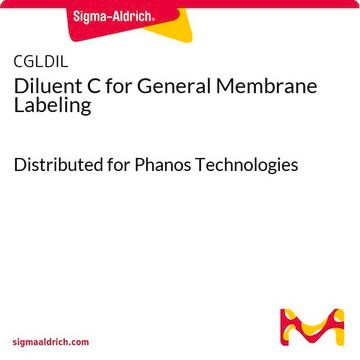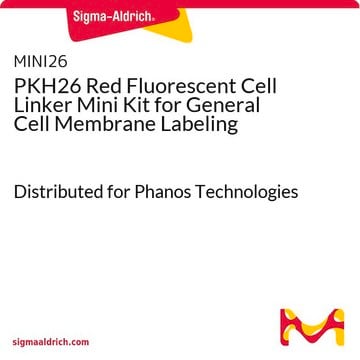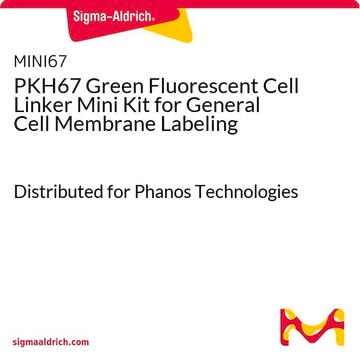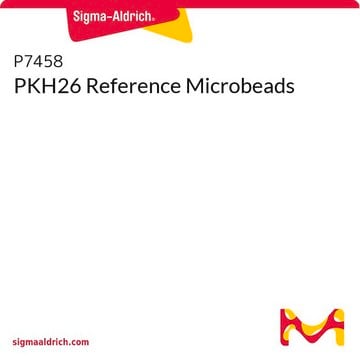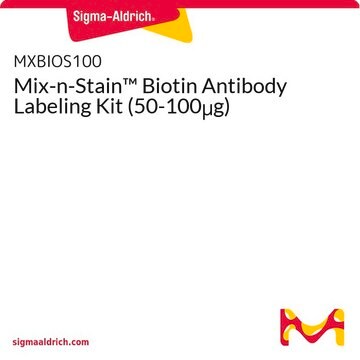MINCLARET
CellVue® Claret Far Red Fluorescent Cell Linker Mini Kit for General Membrane Labeling
Distributed for Phanos Technologies
Synonym(s):
Far red membrane labeling kit
About This Item
Recommended Products
packaging
pkg of 1 kit
manufacturer/tradename
Distributed for Phanos Technologies
storage condition
protect from light
technique(s)
flow cytometry: suitable
fluorescence
λex 655 nm; λem 675 nm (CellVue claret dye)
application(s)
cell analysis
detection
detection method
fluorometric
shipped in
ambient
storage temp.
room temp
Application
- to label monocyte-derived macrophages (MDMs) for antibody-dependent cellular phagocytosis assay
- in labeling of Jurkat cells after the induction of apoptosi
- in labeling of cells in mice for assaying the retention of tumor cells in lung
Biochem/physiol Actions
Packaging
Linkage
Legal Information
Patent Information
Signal Word
Danger
Hazard Statements
Precautionary Statements
Hazard Classifications
Eye Irrit. 2 - Flam. Liq. 2
WGK
WGK 1
Certificates of Analysis (COA)
Search for Certificates of Analysis (COA) by entering the products Lot/Batch Number. Lot and Batch Numbers can be found on a product’s label following the words ‘Lot’ or ‘Batch’.
Already Own This Product?
Find documentation for the products that you have recently purchased in the Document Library.
Customers Also Viewed
Articles
Lipophilic cell tracking dyes enable cancer biologists to track tumor and immune cell functions both in vitro and in vivo. Read the article to choose a right membrane dye kit for cell tracking and proliferation monitoring.
Lipophilic cell tracking dyes enable cancer biologists to track tumor and immune cell functions both in vitro and in vivo. Read the article to choose a right membrane dye kit for cell tracking and proliferation monitoring.
Lipophilic cell tracking dyes enable cancer biologists to track tumor and immune cell functions both in vitro and in vivo. Read the article to choose a right membrane dye kit for cell tracking and proliferation monitoring.
Lipophilic cell tracking dyes enable cancer biologists to track tumor and immune cell functions both in vitro and in vivo. Read the article to choose a right membrane dye kit for cell tracking and proliferation monitoring.
Our team of scientists has experience in all areas of research including Life Science, Material Science, Chemical Synthesis, Chromatography, Analytical and many others.
Contact Technical Service


